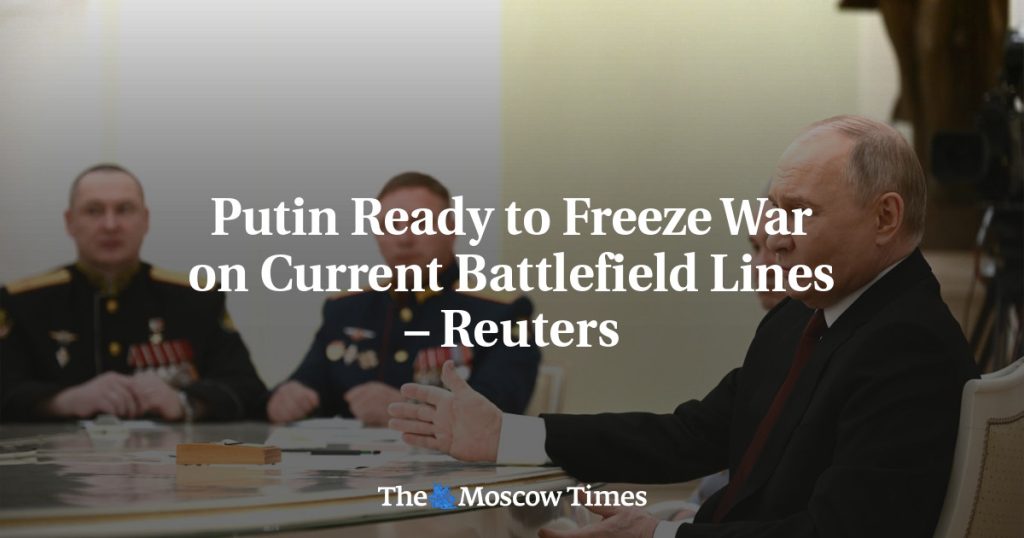President Vladimir Putin is reportedly seeking to negotiate a ceasefire deal with Ukraine that would recognize the current battlefield lines. This news comes as Moscow continues its offensive in northeastern Ukraine’s Kharkiv region, prompting the evacuation of thousands of Ukrainian civilians. Russian sources suggest that Putin is prepared for a ceasefire to freeze the war and potentially claim victory by maintaining sovereignty and securing a land corridor to Crimea.
Kremlin spokesman Dmitry Peskov confirmed that Putin has expressed a willingness to engage in dialogue and avoid an ongoing conflict. However, Ukrainian President Volodymyr Zelensky has rejected any peace agreement on Putin’s terms and remains committed to reclaiming territories currently occupied by Russian forces, including Crimea. Reports indicate that Putin aims to capitalize on Russia’s current momentum on the front lines to put an end to the war and pursue talks with the United States, bypassing Zelensky in the process.
Concerns have arisen about potential obstacles to negotiations, including Western-backed efforts to derail peace talks, which have reportedly frustrated Putin. There are also domestic considerations, as a prolonged war could force Putin to implement a second unpopular mobilization effort. Despite these challenges, Putin is eager to seek a resolution to the conflict and may be looking to engage with the United States directly, as indicated by sources cited by Reuters.
U.S. Secretary of State Antony Blinken has expressed skepticism about Putin’s willingness to engage in meaningful negotiations, casting doubt on the prospects for a peaceful resolution. The ongoing conflict in Ukraine has implications for regional stability and international relationships, as both Russia and Ukraine navigate complex diplomatic and military dynamics. The potential for a ceasefire deal that recognizes current battlefield lines could offer a pathway to de-escalation and a possible resolution to the conflict, though challenges remain on the road to peace.
As the situation in Ukraine continues to evolve, the prospects for a negotiated settlement between Russia and Ukraine remain uncertain. Putin’s interests in seeking a ceasefire deal reflect a desire to consolidate gains and potentially shift the dynamics of the conflict in his favor. However, Zelensky’s rejection of any peace agreement on Putin’s terms underscores the challenges of finding common ground and resolving the underlying issues fueling the conflict. The involvement of the United States and other Western countries further complicates the situation, highlighting the complex geopolitical dynamics at play in the region.
Ultimately, the path to peace in Ukraine will require careful navigation of competing interests, balancing domestic considerations and international pressures to find a sustainable resolution to the conflict. The possibility of a ceasefire deal that recognizes current battlefield lines represents a potential step towards de-escalation, though significant challenges and uncertainties remain. The impact of ongoing hostilities on civilian populations, regional stability, and global security underscores the urgency of finding a peaceful resolution to the conflict to avoid further escalation and loss of life.


